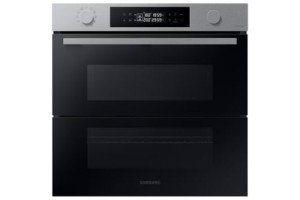The Advantages of Integrated Electric Ovens: A Comprehensive Guide
In modern-day kitchens, the combination of appliances serves both visual and practical purposes. Integrated electric ovens are a prime example of how innovation and design come together to improve cooking experiences. built-in / integrated hobs and ovens into the functions, benefits, and factors to consider surrounding integrated electric ovens, providing an extensive understanding for prospective buyers.
What is an Integrated Electric Oven?
An integrated electric oven is designed to blend flawlessly into kitchen cabinets. Unlike freestanding designs, integrated ovens are built within the kitchen systems, using a streamlined look that lots of property owners desire. These appliances can be compact or large, depending upon kitchen space and cooking needs.
Secret Features of Integrated Electric Ovens
| Function | Description |
|---|---|
| Style Flexibility | Available in various sizes and surfaces to match kitchen aesthetic appeals. |
| Energy Efficiency | Modern electric ovens often include sophisticated energy-saving technology. |
| Smart Technology | Lots of brands now offer models with Wi-Fi connectivity for remote operation. |
| Self-Cleaning Options | Features such as pyrolytic cleansing capabilities reduce upkeep. |
| User-Friendly Controls | Intuitive panels and touchscreens make operation easier for users of all skill levels. |
Benefits of Integrated Electric Ovens
- Aesthetic Appeal
Integrated electric ovens offer a tidy and cohesive seek to the kitchen. By fitting comfortably within kitchen cabinetry, they get rid of the visual mess typically associated with standalone designs. - Space-Saving Design
For smaller kitchens, an integrated model allows users to take full advantage of space without compromising on functionality. The design optimizes vertical space, maximizing important counter location. - Advanced Cooking Options
Modern integrated electric ovens come equipped with different cooking modes, such as convection, steam, and rotisserie. These features make it possible for users to prepare a broader range of dishes with accuracy. - Energy Efficiency
Integrated electric ovens generally consume less energy compared to their gas equivalents. With advancements in technology, they offer faster heating times while guaranteeing consistent cooking results. - Boosted Safety Features
Lots of integrated electric ovens are geared up with automated shut-off features and cool-touch doors, making sure security throughout cooking and lowering the risks of burns.
Factors to consider When Choosing an Integrated Electric Oven
When choosing the ideal integrated electric oven, numerous factors must be considered:
- Size and Capacity: Before selecting, it is vital to measure the designated space in the kitchen. Likewise, think about whether a single or double oven is more suitable based upon cooking routines.
- Mounting Options: Integrated ovens can be mounted in various setups (under-counter or in wall cabinets). Examine which alternative maximizes kitchen workflow while keeping accessibility.
- Budget plan: Integrated electric ovens can vary substantially in cost. Specify a spending plan range beforehand to narrow down options. Make sure to consider long-lasting energy cost savings versus the preliminary financial investment.
- Brand Reputation: Research brands understood for resilience and reliability. Customer evaluations and expert viewpoints can supply valuable insights into performance.
Integrated Electric Ovens: Popular Models
Here are some popular integrated electric oven designs that have gathered favorable evaluations:
| Brand | Design Name | Key Features | Cost Range |
|---|---|---|---|
| Bosch | HBL8453UC | European design, self-cleaning | ₤ 2,200 - ₤ 3,000 |
| Miele | M 7240 TC | Convection, Wi-Fi made it possible for | ₤ 4,000 - ₤ 5,000 |
| Whirlpool | WOS51EC0HS | Large capacity, steam tidy | ₤ 1,200 - ₤ 1,800 |
| Electrolux | E30EW75PPS | Several cooking modes | ₤ 2,000 - ₤ 3,500 |
Often Asked Questions (FAQs)
Q1: What is the distinction in between a built-in and an integrated oven?A: While both types fit within cabinets, a built-in oven frequently needs more installation area and can stand alone, whereas an integrated oven is designed to mix into the surrounding cabinetry, creating a smooth look. Q2: Are integrated electric ovens better than gas ovens?A: The choice between electric and gas ovens frequently comes
down to personal choice. Electric ovens provide more even heat distribution, while gas ovens heat up quicker. Integrated electric ovens typically use advanced technology and consistent cooking outcomes. Q3: Do integrated electric ovens featured a warranty?A: Most brands use aminimal service warranty that covers parts and service for a specified
duration, normally varying from one to 2 years, depending on the producer. Always check service warranty information before purchase. Q4: Can integrated electric ovens be fixed easily?A: Like all appliances, repair work ease depends upon the issue and schedule ofparts. Numerous integrated models have available elements for
repairs; however, it's suggested to seek advice from an expert service technician for complex problems. Integrated electric ovens are an important element of modern cooking areas, offering a mix of style, performance, and advanced cooking abilities. House owners thinking about a remodel or new device purchase must weigh the benefits against their cooking needs, spending plan, and design preferences. With numerous designs available, the best choice can raise cooking experiences and add to the general appeal of a kitchen. Whether you are an amateur cook or an experienced chef, an integrated electric oven can make a significant distinction in your cooking adventures.

